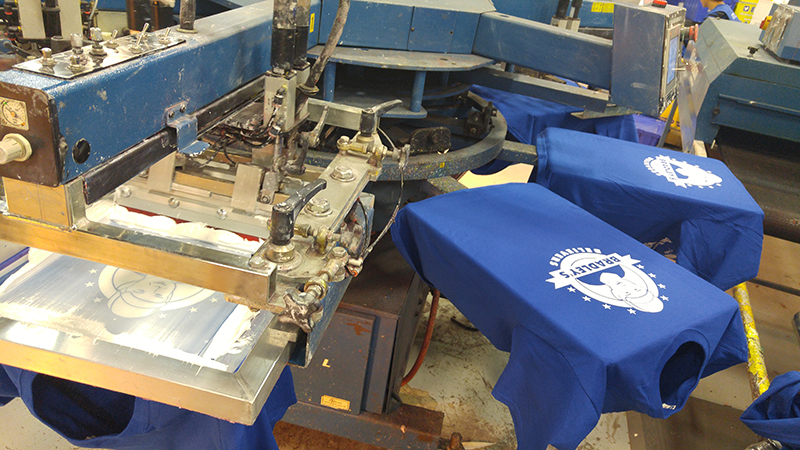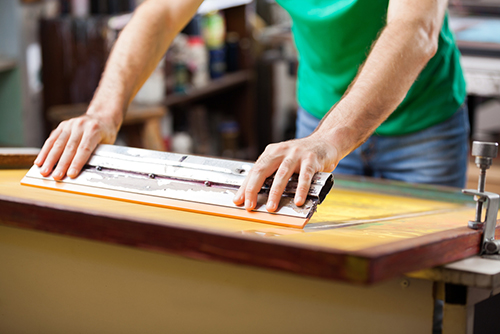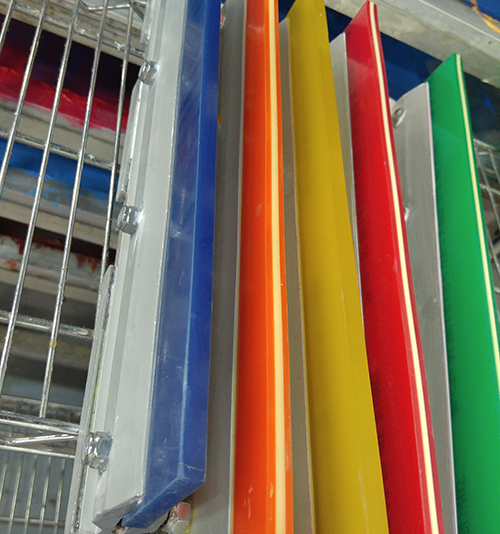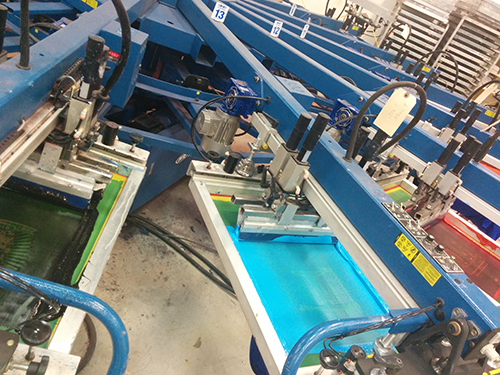
Choosing the best printing option for your custom apparel is a difficult but necessary decision. In your research you have likely come across two types of printers; one that operates on a manual screen printing and the other that uses an automatic press. So, the question remains, what’s the better choice for your custom apparel print job?
Several factors need to be considered when choosing between a screen-printing company that operates on an automatic or manual screen-printing press. These considerations include, the size of your order, number of colours in your design, speed and efficiency and whether you plan to reorder the same design.
The Physical Challenge of Manual Screen Printing
Since, manual screen printing is more physically demanding, the final design relies heavily on the physical abilities of the screen press operator. Experience and accuracy training are necessary for preparing your custom t-shirts for printing. Factors such as alignment and knowing how much pressure to apply to the blade to control the amount of ink being applied to the t-shirts requires continuous practice and skill.

When placing an order with a company that uses a manual printing press, it is important to consider the likelihood of repeat orders and whether consistency between the orders is an essential requirement. Differences between your custom t-shirt orders can occur since the pressure applied to the blade may vary based on the person that operates the manual printing press. So, if you plan to make multiple repeat orders with a company that uses a manual printing press, potential inconsistencies in your orders are a key factor to think about in your decision-making process.
Small Print Runs Are Best for Manual Presses
Manual screen print presses are ideal for small run orders. Many companies that operate automatic screen-printing presses have a minimum quantity for screen-printed custom t-shirt orders. For instance, Entripy’s requires a minimum order quantity of twelve custom t-shirt for screen printing. In automatic screen-printing it is time-consuming to make each screen and then load them onto the machine for each colour. As such, it would be unproductive to put in that amount of work into producing a few custom t-shirts, as opposed to a large batch order. Since the overhead costs of operating a manual screen-printing press are significantly lower, companies continue to make a profit by screen printing these smaller run orders.

The Speed of Automatic Screen Printing Machines
Speed is a leading reason why custom apparel companies invest in an automatic screen-printing machine. An automatic screen-printing machine can print 4000-5000 custom t-shirts during an 8-hour shift. This is compared to a manual press that produces only 400-500 custom t-shirts in the same time period. The shorter production and turnaround times are ideal for handling large run orders. When Entripy printed 20,000 custom t-shirts for the Toronto Raptors playoffs games, we were able to get the order out in a 20-hour turnaround using our automatic screen-printing machines.

When Consistency Is Key
If maintaining consistency amongst your garments in areas such as logo placement and high print quality are essential, then automatic screen printing is the best option for your custom t-shirt orders. For instance, large events like a charity run require custom t-shirts for hundreds of participants and automatic screen-printing will ensure your order preserves a uniform image. An automatic screen-printing press can print a large run in a short period of time, while ensuring the exact same amount of pressure on the blade is used to apply the ink to the garment. This ensures your custom t-shirts maintain a uniform look, while speed is prioritized to prepare your order in a timely manner.







